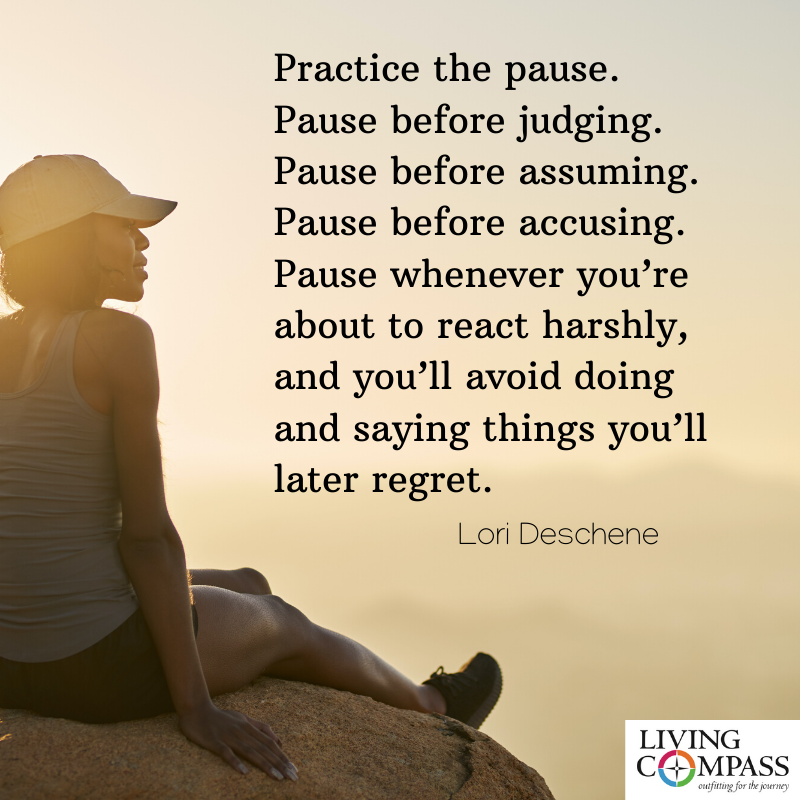Integrity
Take a moment to bring to mind some people who have inspired you, and who have had a significant, positive impact on your life.
As you reflect on who came to mind just now, whether they were a parent, friend, sister, brother, family member, teacher, coach, boss, spiritual leader, or political leader, I imagine that there is something they all have in common—each of them was a person of integrity.
The word integrity shares the same root as the word integration. A person with integrity has a high degree of integration between what they say and how they live. Such a person “walks the talk” and embodies in their actions what they say with their words.
Integrity is based on the highest spiritual values of what it means to live a good life, transcending political, religious, and other differences. People from different perspectives will be open to listening to and learning from a person of high integrity. Without integrity, a person’s voice will rarely be taken seriously.
If you watched the funeral for Congressman John Lewis this week, you witnessed the honoring of a person by people of all political perspectives. The theme that ran through the remarks at the funeral, as well as the tributes that have poured in since his death, was of Lewis’ integrity. Lewis preached the path of love, mercy, and justice just as clearly as he walked that path in is life. And as evidence of how his life of integrity did transcend politics, I share with you words spoken by former President George W. Bush, one of the many speakers at Lewis’s service in Atlanta Thursday. I invite you to read these words thoughtfully and slowly as it describes so well the essence of a life lived with integrity and love.
“He always thought of others; he always thought of preaching the gospel, in word and in deed, insisting that hate and fear had to be answered with love and hope. John Lewis believed in the Lord, he believed in humanity and he believed in America. He’s been called an American saint, a believer willing to give up everything, even life itself, to bear witness to the truth that drove him all his life. That we could build a world of peace and justice, harmony and dignity and love. And the first crucial step on that journey was the recognition that all people are born in the image of God, and carry a spark of the divine in them.
John’s lesson for us is that we must all keep ourselves open to hearing the call of love. The call of service. And the call to sacrifice for others. Listen, John and I had our disagreements of course – but in the America John Lewis fought for, and the America I believe in, differences of opinion are inevitable elements and evidence of democracy in action. We the people, including congressmen and presidents, can have differing views on how to perfect our union while sharing the conviction that our nation, however flawed, is a good and noble one. We live in a better and nobler country today because of John Lewis and his abiding faith in the power of God, the power of democracy and in the power of love to lift us all to a higher ground.” Former President George W. Bush.
In anticipation of his death, John Lewis wrote an essay in the final days of his life and requested that it be published the day of his funeral. I close with an excerpt from this essay, hoping that in these difficult times, we may find strength and inspiration in his call to live a life of integrity, a life where, in Lewis’s words, we “let the spirit of peace and the power of everlasting love be your guide.”
“Though I may not be here with you, I urge you to answer the highest calling of your heart and stand up for what you truly believe. In my life I have done all I can to demonstrate that the way of peace, the way of love and nonviolence is the more excellent way. Now it is your turn to let freedom ring. When historians pick up their pens to write the story of the 21st century, let them say that it was your generation who laid down the heavy burdens of hate at last and that peace finally triumphed over violence, aggression and war. So I say to you, walk with the wind, brothers and sisters, and let the spirit of peace and the power of everlasting love be your guide.” From a final essay from Congressman John Lewis.
May we each strive to walk with the integrity and example of Congressman John Lewis.
Subscribe Now to Weekly Words of Wellness:
Click the button below to signup for the e-mail version of Weekly Words of Wellness. This weekly article can be shared with your community electronically and/or used for group discussion.
You can unsubscribe at any time.




